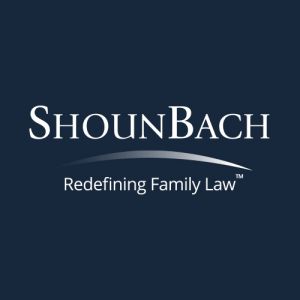- Home
- Family Law Services
- Adoption Attorneys in Northern Virginia
Adoption Attorneys in Northern Virginia
Our Northern Virginia Adoption Attorneys Can Guide You
Adoption is a process that involves very specific rules and procedures, and adoption law is one area of family law that can be particularly difficult to navigate without legal counsel. There are many types of adoption, each with their own set of procedures, making adoption an often complicated process.
Adoption procedures can be confusing both for the biological parents and the adoptive parents. All parties to an adoption case should be informed about their rights, how the adoption system works, and how best to keep the child’s best interests protected. Adoption is often an experience that results in the happiest of endings, and with the help of a knowledgeable adoption lawyer the road to a new family can be made clearer.
It is important that you have a basic knowledge of adoption, regardless of whether you are welcoming a child into your family or securing a new family who will provide a good life for your birth child.
Parental Placement Adoption
When a child’s birth parent chooses the adoptive family directly, it is typically known as parental placement adoption. This kind of an adoption, like many other adoptions, is substantially impacted by the level of cooperation of both birth parents. Birth parents may seek an individual or a couple to adopt their child.
In some situations, a biological mother of a child whose father is not identified or not easily located decides to place the child up for adoption. In such circumstances, the parties seeking to proceed with the adoption must comply with certain rules that require good faith efforts made to locate and obtain the consent of the biological father.
As part of the adoption process, all parties receive counseling about the alternatives to adoption. Courts require assurances that no party is proceeding with the adoption based on coercion or any other means of force. Additionally, there are very specific parameters regarding financial agreements made in connection with adoptions because the law prohibits financial compensation for adoption except in connection with reimbursement of certain expenses incurred as part of the adoption process.
In parental placement adoptions, a home study is conducted in which the adoptive family must provide personal information such as an autobiographical statement, references, background checks, income and health statements. As part of the home study, interviews and home visits are conducted by a social worker in order to ascertain whether the adoptive family is suitable and can provide an appropriate home and environment for the child.
Should all of the statutory requirements be met and the outcome of the home study be favorable to the adoptive parents, then the parties may appear before a judge to request that the adoption be granted.

Agency Adoption
This form of adoption is one of the most common in the United States. Agency adoption occurs when a family chooses to adopt through an agency and the agency works as the intermediary between the family and the birth parent(s). However, agency adoption can also take place in a situation where a child has been abandoned, abused or neglected.
Home studies are required of the adoptive parents and it is also usually required that the biological parents’ parental rights are terminated before the adoption can proceed. In some cases the court will enter an interlocutory order, which grants the adoptive parents parental rights, but subject to a six month probationary period. However, in many cases, after the child has been in the custody of the adoptive parents for six months or more, the interlocutory order is unnecessary and the parties can proceed to finalization of the adoption.
International Adoption
Another common choice is adopting a child from another country. In many cases, this is performed through an agency that is specially licensed to handle international adoption matters. This process can be particularly arduous, as the adoptive parents must comply with the laws of the state in which they reside, federal law governing adoption, and the rules of the country from which they are adopting a child.
Also, because the child is not an American citizen, the adoptive parents must apply for a visa that allows the child to enter the United States. Even after a foreign adoption order is obtained, it is typically a good idea to re-adopt the child in their home state. Considering the complicated procedures involved in international adoptions, and the many jurisdictions in which adoptive parents must ensure they have complied with the laws, having a knowledgeable lawyer to provide critical legal guidance and counsel can help the process.
Foster Parent Adoption
Foster parent adoption is similar, in many ways, to agency adoption. However, in foster care adoptions, it is most often the case that the child who is being adopted has been in the care of his/her adoptive parents for some time, and both parents and child have received the benefit of some regular and meaningful interaction and developed a familial relationship.
When a child enters the foster care system, the initial goal of the social services program is typically to reunite the child to their birth family whenever possible. However, in some cases where there is a lack of contact between parent(s) and child and/or the continued relationship between parent(s) and child is shown to be contrary to the child’s best interests, the rights of the parent(s) can be terminated and the child may become eligible for adoption. In such a case, the foster parents will often seek to adopt the child.
Hire a Northern Virginia Adoption Attorney
If you are seeking to adopt a child, or to put your child up for adoption, it is critical that you understand the process and make the right decision in selecting counsel who can keep you informed and skillfully guide you through the adoption process. With help from an adoption lawyer from ShounBach, you won’t have to worry.
Our firm is dedicated to the practice of family law, and has been for over 50 years. We have more than 200 years of collective legal experience, so you can rest assured that your case will be in good hands if you should bring us into your case. Our attorneys are AV-rated and have been awarded a multitude of recognitions by the likes of Super Lawyers®, Northern Virginia Magazine, and the Washingtonian, among other prestigious professional publications. See our adoption FAQ page to gain even more insight on the topic before making your decision.

Related Practice Areas
Contact a Northern Virginia adoption lawyer from ShounBach. We are ready to provide you sound advice and representation in your adoption case.
"*" indicates required fields
Phone: 703-222-3333
Fax: 703-222-3340
Contact Us
